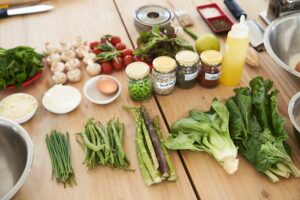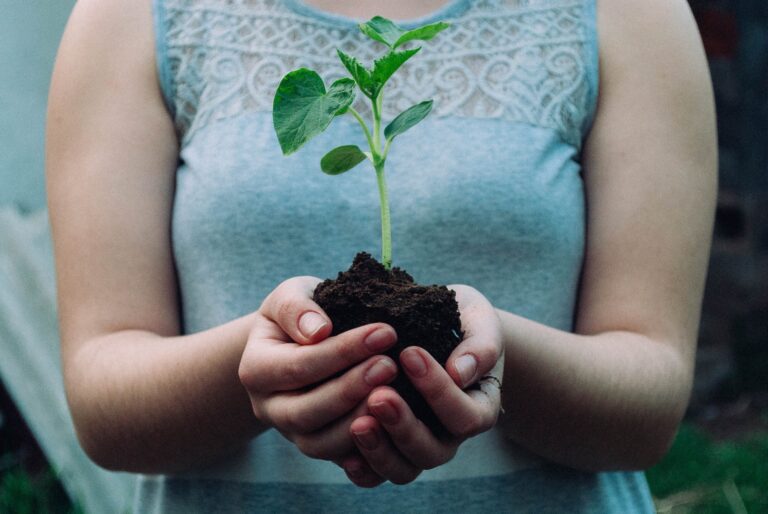Simple Ways to Eat More Sustainably in 2025

Sustainable eating is a dietary pattern that considers both the body and the environmental impacts. Many foods that are harmful to human health are also bad for the environment. They contribute to climate change and greenhouse gas emissions around the world. Eating sustainably in 2025 can be both simple and impactful. Here are some effective strategies to help you make more environmentally friendly food choices:
Embrace Plant-Based Eating
Transitioning to a more plant-based diet is one of the most significant changes you can make. Reducing meat and dairy consumption lowers your carbon footprint and promotes better health. While it might not be entirely possible, you can try reducing your consumption.
Eating more plants doesn’t mean adopting a strict vegan or vegetarian diet; instead, you should focus on making your plate represent mostly plant-based foods. You can opt for whole-meal bread, whole-grain pasta, unrefined barley, buckwheat products, or quinoa as a source of daily carbohydrates. They provide essential nutrients and can help reduce the risk of chronic diseases while supporting sustainable agriculture.
Seafood can be a healthy addition to your diet. When you buy live seafood like Salmon, Tuna, Shrimp, or Lobster locally, it ensures freshness as well as taste. Similarly, pasture-raised meat and grass-fed take less of a toll on the environment.
Moreover, these animals are typically raised without hormones or antibiotics, given space to live freely, and fed feed that provides more nutrients. Thus, the meat is more nutritious. Transitioning to a diet that includes more sustainable meat options is an effective way to lessen the environmental impact of meat consumption as a whole.
Reduce Food Waste
Food waste is a major contributor to greenhouse gas emissions. To combat this, plan meals carefully, store food properly, and utilize leftovers innovatively. To cut down on excess food waste, just buy what you need. Additionally, you can plan meals ahead of time and only buy what you want to use.
Even if the products are on sale, you don’t need to hoard them in your pantry. You can freeze the food you prepare to use later. Working towards wasting less food is important for sustainability, as a large amount of food is wasted. Composting food scraps can also reduce waste and enrich soil. You can either collaborate with a local facility or make your own compost.
Meal Planning and Preparation
When we plan our meals, we shop and eat more responsibly. Prep your meals for the week at a convenient time, then freeze portions you can quickly thaw and eat throughout the week. This not only saves time but also ensures that your meals won’t spoil before you can enjoy them. Bringing lunch to work eliminates waste, such as fast-food packaging, and you’ll save a ton of money.
Planning your meals in advance will help you be more aware of what you eat. It will also allow you to control ingredients and portion sizes, which contributes to health and sustainability. You can also consult certified nutritionists to understand your daily requirements and add them to your meals. Preparing meals at home also reduces impulse buys of less sustainable options.
Moreover, eating leftovers isn’t just about saving money. Some dishes take on a new life after a day in the fridge, developing a deep flavor. You can also get creative and turn your old lasagna into a new dish. Donating food is another great way to keep your kitchen sustainable. You’ll avoid wasting food while helping your family, friends, neighbors, or even a local food bank.
Limit Processed Foods
If a food product has been manufactured using many steps and has many ingredients coming from all over the world, its carbon footprint will be higher. Opt for fresh, whole foods instead of snacks like chips or sugary treats, which are not only less healthy but also contribute to higher carbon emissions.
These items often contain additives, preservatives, and excessive packaging. Avoiding food in this category will help eliminate waste, reduce energy use in the food production process, and help individuals stay healthy. You can always cook meals from scratch using different ingredients and experiment with herbs, spices, and homemade sauces to add flavor without relying on processed food.
Buy Local and Seasonal
Eating locally and seasonally is good for the environment, community, wallet, and health. Foods that travel long distances are not typically sustainable. For example, purchasing fruits in the winter from faraway countries that are flown in by air has a high environmental impact.
While people consider gardening a hobby, it is really useful. You can get fresh herbs or vegetables whenever you feel like. What you cannot grow, you can always rely on local farmers. It will ensure that your food is fresh. You can also purchase your goods from local farmers. Buying food locally puts money back into the community by supporting local farmers.
Local and seasonal foods may have higher nutrient content. Buying seasonally also makes produce more affordable, allowing you to enjoy various types of fruits and vegetables year-round. Seasonal eating is a sustainable practice that respects the natural cycles of food production, maximizing the availability and freshness of locally grown produce.
Integrating Home Automation in Everyday Life
Sustainability cannot be discussed without discussing kitchen appliances, which we use every day. Smart appliances, such as refrigerators that monitor food freshness and ovens that can be programmed for optimal cooking times, enhance energy efficiency and reduce food waste. Voice-activated assistants help in meal preparation by creating a grocery list or recommending recipes.
Moreover, home automation technologies help keep various aspects of daily life in check. It reduces the stress associated with managing household tasks. With features like motion sensors that can adjust brightness based on occupancy and time of day, ensuring that lights are only on when needed. Especially when you live in busy cities like Malibu, Beverly Hills, or Los Angeles, setting up home automation creates a comfortable atmosphere without the hassle of manual adjustments. Therefore, playing a crucial role in your sustainable lifestyle.
Reduce Packaging Waste
Food packaging, especially when made of non-recyclable materials like plastic and Styrofoam, can be extremely harmful to the environment. Every year thousands of seabirds, sea turtles, seals, and other marine mammals are killed after ingesting plastic or getting tangled up in it. This is because the process of creating such materials uses a lot of resources such as energy, water, chemicals, petroleum, and fibers. The manufacturing process also generates harmful emissions and wastewater containing toxic contaminants.
Non-recyclable food packing often takes many years to decompose, leading to the accumulation of waste in landfills or oceans. To reduce pollution, choose fruits and vegetables that require minimal packaging or recyclable packaging to lessen environmental harm.
The best is to bring your own reusable bags or containers wherever possible. Similarly, when you use a plastic bottle and it gets heated, the chemicals that make up its composition can actually leak into the water it’s carrying. Buying groceries, such as grains, in bulk saves money and eliminates the need for plastic packaging. Also, switch from single-use to reusable products, such as water bottles, bags, and straws whenever possible.
Takeaway
All big changes start small. By integrating these practices into your daily routine, you can contribute positively to the environment while enjoying a diverse and nutritious diet in 2025. We know that any lifestyle adjustments will take time, but if you’re serious about being more conscious of the planet, it will take some commitment.
It’s easy to give up due to convenience and instant gratification, but a sustainable life sometimes requires putting the planet’s well-being before one’s own. Sustainable eating can help reduce greenhouse gas emissions, pollution, and chronic diseases.
There is no one-size-fits-all approach to food choices, so, it is okay to be flexible with your diet. Remember, doing your part for the planet can really make a difference.


